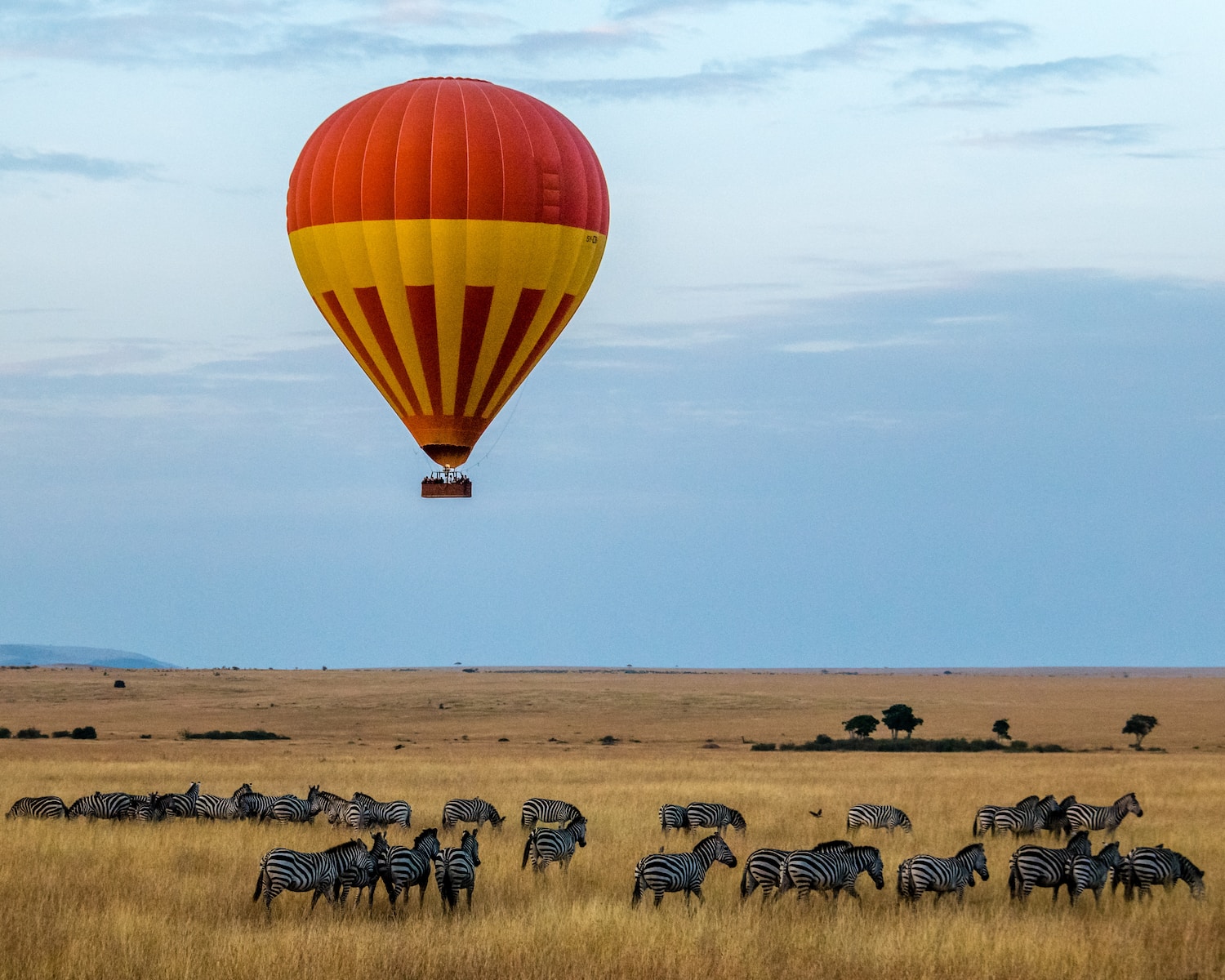Africa is a continent of mystery, wonder and adventure. It is home to diverse cultures, wildlife and landscapes that have captivated the imagination of adventurers for centuries. From the savannahs of East Africa to the deserts of North Africa, there is no shortage of experiences waiting to be discovered.
Experiencing the Magic of Africa: An Adventurer’s Guide is a comprehensive guidebook designed for those seeking an authentic African adventure. Based on firsthand experience, this guide offers practical advice and insider tips on how to navigate the terrain, interact with locals, and explore the hidden gems off the beaten path. Whether you are embarking on a safari in search of the Big Five or exploring ancient ruins steeped in history and mysticism, this guide will help you make the most out of your journey while immersing yourself in everything Africa has to offer.
Preparing For Your African Adventure
Are you planning an adventure to Africa? If so, there are several essential things that you need to consider before embarking on your journey. One of the most critical aspects is packing essentials. When traveling in Africa, it’s important to pack clothes that will keep you comfortable and protect against the harsh African sun.
Additionally, visa requirements must be fulfilled before entering any country in Africa. It’s necessary to research the specific entry requirements for each country on your itinerary and ensure all documents are up-to-date. Failure to complete these prerequisites can result in a delay or even cancellation of your trip. By taking care of these details ahead of time, you’ll have a more enjoyable and stress-free experience during your African adventure!
Choosing Your Destination: A Guide To Africa’s Top Attractions
After preparing for your African adventure, the next step is to choose a destination that matches your interests and preferences. Africa offers an array of attractions ranging from wildlife safaris to cultural experiences. While some destinations are well-known tourist hotspots, others remain off the beaten path waiting for intrepid travelers to discover them.
If you’re looking for unique experiences away from the crowds, consider exploring lesser known African destinations such as Mali’s Timbuktu or Burkina Faso’s Banfora. These places offer authentic encounters with local cultures and traditions without sacrificing comfort and safety. However, keep in mind that traveling off the beaten path requires more planning and research than visiting mainstream destinations. Make sure to inform yourself about entry requirements, health risks, and security issues before embarking on your trip.
When it comes to deciding between a guided tour or solo travel, both options have their advantages and challenges. Guided tours provide organized itineraries, knowledgeable guides, and group dynamics that can enhance social interactions and reduce stress. On the other hand, solo travel allows more flexibility, independence, and personal growth but also involves higher responsibility for logistics and safety precautions. Whether you prefer sharing your adventures with like-minded people or following your own rhythm, make sure to weigh carefully the pros and cons of each option based on your personality traits and expectations.
Navigating African Terrain: Tips And Tricks For Safe Travel
Off-road driving is a common mode of transportation when exploring the vast wilderness in Africa. However, it can be dangerous if precautions are not taken. It’s important to have a reliable vehicle that can withstand rough terrain and carry enough fuel and water for long distances. Before embarking on an off-road adventure, make sure to inform someone of your itinerary and expected return time. In case of getting lost or stuck, having a plan in place will increase chances of being found quickly. Additionally, always wear appropriate clothing and protective gear such as closed-toe shoes, sunscreen, hats, and insect repellent.
Wilderness survival techniques are crucial skills every adventurer should possess while traveling through Africa’s remote regions. Basic knowledge like building shelter, starting fires without matches or lighters using natural resources such as dry grasses or flint rocks could save lives during unexpected situations. Learning how to find edible plants and fruits will also help sustain oneself in times where food supplies run low. When crossing rivers or streams, take caution by assessing the depth before attempting to cross; strong currents may pose a significant risk even to experienced swimmers.
Wildlife Encounters: Dos And Don’ts For Safari Adventurers
Wildlife encounters are a primary reason for many people to visit Africa. The continent boasts an impressive array of animals, including elephants, lions, zebras, and giraffes. While these creatures can be awe-inspiring to observe in their natural habitats, it is essential that visitors adhere to strict guidelines when interacting with them.
One of the most popular activities on safari trips is wildlife photography. However, ethical tourism dictates that photographers should prioritize animal welfare over getting the perfect shot. This means avoiding disturbing or harassing animals during photo sessions and respecting their personal space. Additionally, flash photography can disorient nocturnal animals and should be avoided at all costs. By being mindful of the potential impact on wildlife, tourists can ensure that they leave behind only memories and not detrimental effects on the environment they came to enjoy.
As visitors embark on their African adventure seeking freedom from the constraints of everyday life, it’s worth remembering that this privilege comes with responsibility. Ethical tourism practices must be followed closely when encountering wildlife on safari adventures so as not to disrupt delicate ecosystems or endanger any species’ well-being inadvertently. With proper preparation and respect for nature’s inhabitants, travelers will undoubtedly have an unforgettable experience while simultaneously contributing positively to conservation efforts across the region without compromising integrity or jeopardizing future generations’ chances at experiencing such magic themselves someday too!
Meeting The Locals: Cultural Sensitivity And Etiquette
Cultural immersion is an essential aspect of any adventure in Africa. Meeting the locals can provide a unique opportunity to learn about their customs and traditions, making for a richer experience overall. However, it’s important to approach these interactions with sensitivity and respect. In many African cultures, there are specific norms and expectations regarding behavior, communication styles, and dress.
Language barriers can also present challenges when interacting with locals. While English may be widely spoken in some areas, many regions have multiple languages or dialects that require translation services. It’s crucial to remember that not all Africans will speak English fluently or at all. Taking the time to learn common phrases in local languages or hiring an interpreter can show your commitment to understanding and appreciating their culture.
Food, Drink, And Dining: A Guide To African Cuisine
African cuisine is a melting pot of different cultures and traditions. It varies greatly depending on the region, with each country having its own unique dishes that are often prepared using local ingredients. One thing to note about African cuisine is that it tends to be quite spicy, which may not suit everyone’s palate. However, for those who enjoy bold flavors and savory delicacies, African cuisine will not disappoint.
One of the most popular types of food in Africa is meat-based dishes, such as barbecued or roasted meats. In West Africa, jollof rice is a staple dish made from rice cooked in tomato sauce with spices and vegetables. In East Africa, stews and curries made with coconut milk are common, while North Africans tend to favor tagine – slow-cooked stews served over couscous. When it comes to drinks, there are plenty of exotic options available too. From refreshing fruit juices like mango and passionfruit to alcoholic beverages like palm wine and teff beer (made from an Ethiopian grain), there’s something for everyone to sip on while enjoying their flavorful meal.
Accommodations: From Luxury Lodges To Budget-Friendly Options
Accommodations in Africa come in a wide range of options, catering to every budget and preference. From luxury lodges with all the amenities to eco-friendly options that offer an off-the-beaten-path experience for those seeking adventure, there is something for everyone. Many accommodations provide wildlife viewing opportunities right from your doorstep, enabling you to witness some of Africa’s most magnificent creatures up close.
Luxury lodges are abundant across the continent, offering high-end services such as private pools and gourmet dining experiences. However, if you’re looking for a more authentic African experience while still enjoying comfort and convenience, consider staying at one of the many eco-friendly options available. These establishments prioritize sustainability and minimize their environmental impact by using renewable resources and employing local staff. Off-the-beaten-path locations allow travelers to immerse themselves in nature fully, away from the crowds, making it ideal for those who seek solitude or want to take part in outdoor activities like hiking or birdwatching.
Adventure Activities: Hiking, Rafting, And More
After a restful night’s sleep in your chosen accommodation, it’s time to embark on some off the beaten path adventures. Africa is known for its adrenaline fueled experiences that are sure to get your heart racing and leave you with unforgettable memories. Some of the most popular adventure activities include hiking, rafting, and more.
If you’re up for a challenging hike, head to Mount Kilimanjaro in Tanzania or the Drakensberg Mountains in South Africa. These treks will take you through stunning landscapes and offer breathtaking views from their summits. For those who prefer water-based activities, white-water rafting down the Zambezi River in Zambia or Zimbabwe is an exhilarating experience not to be missed. You can also go surfing along the coasts of countries such as Mozambique and South Africa. Whatever activity you choose, make sure to research reliable tour operators beforehand and always prioritize safety during these high-risk adventures.
Historical And Cultural Sites: Exploring Africa’s Rich Heritage
Africa is a continent that boasts of an impressive cultural heritage. The UNESCO World Heritage sites are scattered across the continent, showcasing magnificent artistry and architecture that tell stories about the African people. These sites include the Great Zimbabwe Ruins in Zimbabwe, the rock churches of Lalibela in Ethiopia, and Robben Island in South Africa. Each site represents unique aspects of African history and culture.
Moreover, attending traditional festivals is another way to explore Africa’s rich heritage. These festivals reflect various cultures’ customs, beliefs, values, and traditions passed down from generation to generation. For example, Ghana celebrates its famous Homowo festival annually where individuals dress up in colorful costumes while music fills the air. Similarly, Nigeria celebrates their annual Osun-Osogbo festival with prayers, rituals for purification purposes at the Osun Grove which attracts thousands of tourists globally. Visiting these festivals not only provides insight into different cultures but also offers visitors an opportunity to participate actively in local customs — making it an unforgettable experience one would always cherish forever.
Sustainable Travel: Making A Positive Impact On The Environment And Communities
Eco friendly tourism is a term used to describe travel practices that prioritize the preservation of the natural environment and local communities. In Africa, eco-friendly tourism has gained popularity in recent years as travelers become more conscious of their impact on the environment. This type of tourism encourages visitors to respect nature by reducing waste, conserving water resources, and minimizing energy consumption. Eco-tourism operators also work with local communities to create sustainable livelihoods through community-based initiatives such as promoting traditional crafts or organizing cultural experiences.
Community-based initiatives are essential for sustainable travel because they empower locals while preserving culture and tradition. These programs create opportunities for economic growth without compromising environmental integrity. One example is community-run wildlife conservation projects where profits go directly back into protecting endangered species and their habitats. Another initiative includes locally-owned accommodations which provide employment and training for residents while offering authentic African hospitality to tourists. Sustainable travel not only benefits the environment but also supports social development within local communities, making it an excellent way to experience Africa’s magic while contributing positively to its future.
Conclusion
In conclusion, Africa offers a wealth of adventure and discovery for those willing to embark on its journey. From the breathtaking landscapes of Victoria Falls in Zimbabwe to the ancient pyramids of Egypt, Africa boasts some of the world’s most spectacular attractions that are sure to leave an unforgettable impression. But beyond these sights lies a diverse culture with warm and welcoming locals who will make your experience all the more enriching.
As you navigate through this vast continent, be sure to keep cultural sensitivity and environmental sustainability at the forefront of your mind. Whether it’s hiking up Mount Kilimanjaro or observing wildlife on safari, every step taken can have a positive impact on both yourself and the communities you visit. So pack your bags, grab your adventurous spirit, and set off into the magic of Africa where endless possibilities await.





